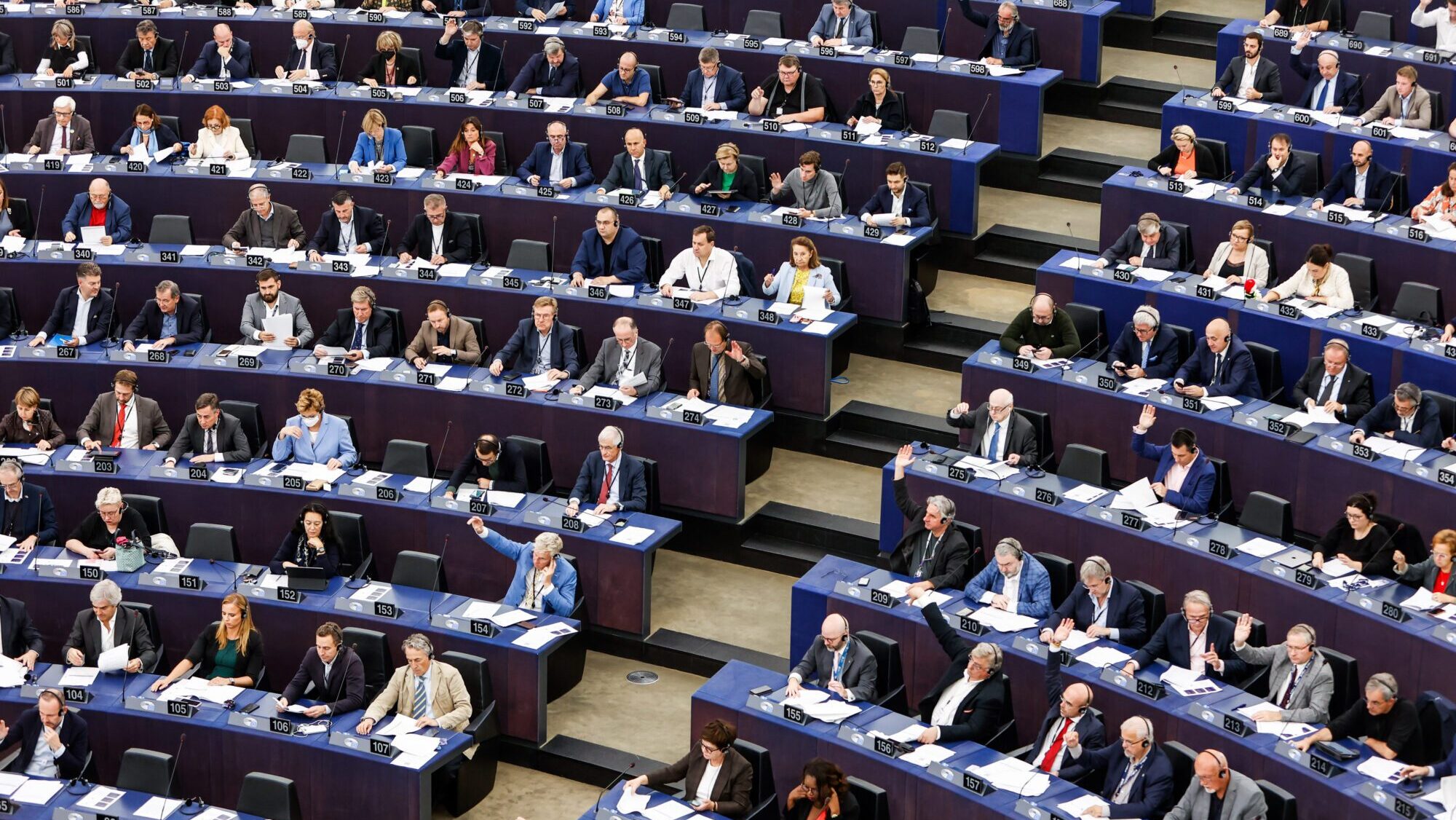
Plenary session, European Parliament
Photo: © European Union 2022 – Source : EP
At least one in four MEPs have a paid side gig, but some are much more lucrative than others, Transparency International’s new report revealed on Monday, May 6th. For 2023, members of the European Parliament disclosed a total of nearly €9 million worth of extra-parliamentary income—more than a third of which was made by a single MEP who’s currently under investigation for fraud.
There’s a lot to dig out of Transparency’s data, but there’s also one MEP who undoubtedly steals the spotlight: the non-aligned Viktor Uspaskich, the former leader of Lithuania’s Labor Party.
According to his public disclosures, the ethnic Russian entrepreneur makes €3 million a year from a company called Edvervita. Primarily a real estate firm, Edvervita also deals with other products, including miracle healing water, apparently. In 2020, the company came under fire for claiming that its mineral water was protecting its consumers from COVID-19—advertised by Uspaskich himself in a live Facebook stream—which Lithuanian authorities described as a “clear breach of law.”
The MEP’s biggest scandal, however, broke just a few weeks ago, after Lithuanian authorities raided his properties as well as the Labor Party’s headquarters. Vilnius’ Financial Crime Investigation Service (FNTT) suspects that Uspaskich has embezzled over €500,000 between 2014 and 2020 by claiming the salary and benefits of a person employed as his parliamentary assistant on paper only.
Now, even if Uspaskich accounts for over a third of the entire Parliament’s extra revenue, there’s still a lot to go until €8.7 million, and Transparency’s data provides some valuable insight.
According to the data, 70% of MEPs perform some sort of side activity, most of them, however, are unpaid jobs or are disclosed as such. Only 26% of the total members reported being paid for their secondary jobs, but that’s likely an understatement, as MEPs only need to disclose income over €5,000 a year from a single source. Between them, this 26%—about 190 people—make an estimated €8.7 million a year outside of their primary jobs.
Key figures:
— Transparency International EU (@TI_EU) May 6, 2024
💼70% of MEPs have some sort of side activity
💶More than a quarter are paid for it
📈Side income amounts to a whopping 8.7 million euros annually
Being an MEP pays well in itself. On average, they make €120,000, plus allowances like travel costs or the extra €350 every day they show up to work to cover accommodation and meals while in Brussels or Strasbourg. Still, more money never hurts, and having a side gig to complement their parliamentary salary is not illegal, as long as there are no conflicts of interests—like lobbying for legislation that they have a hand in.
Transparency International did find a couple of shady side jobs that might very well constitute a conflict of interest. One is an executive board member of a tech company making payment systems while having drafted several relevant legislations. Another is working for an international law firm that claims to be ”profoundly influenced by EU law.” Some of the self-disclosed job descriptions raise suspicion for being intentionally vague, like dealing with “renewable energy business plans.”
Nonetheless, the overwhelming majority (82%) of paid side activity in the Parliament comes from board membership, 13% from remunerated activity, and only 5% from shareholding. This last category might be the most underreported, however, as holding shares only needs to be disclosed if the company’s activities might have public policy implications, and deciding whether it does is left entirely to the MEPs.
Transparency’s analysis also revealed that right-of-center MEPs are more likely to have a paid side gig—or, maybe, just more likely to disclose them. However, when looking at voting records about protecting the current lax rules, the picture is more nuanced.
Out of the seven parliamentary groups, only the majorities of the center-right European People’s Party (PP), the liberal Renew, and the national conservative European Conservatives and Reformists (ECR) voted against a proposed ban on all paid lobbying activities. Most MEPs further left as well as the majority in the right-wing populist Identity and Democracy (ID) supported the stricter rules.
Among them, the EPP was by far the most adamant about protecting their side jobs, with 95.8% of the party rejecting the change. This checks out: the data shows that EPP has the highest share of representatives on a secondary payroll (33.3%), followed by the socialists (S&D) with 27.1%. On the top ten highest earners’ list, four MEPs belong to the EPP, one to Renew, S&D, and ID each, while three of them are non-aligned.
